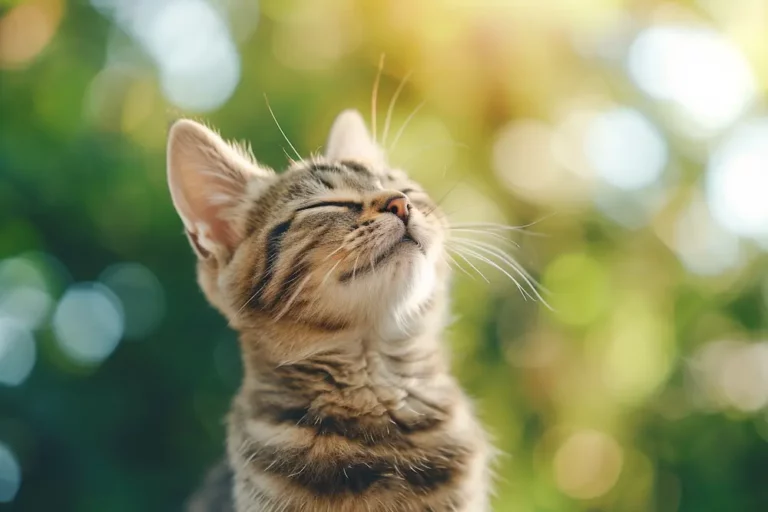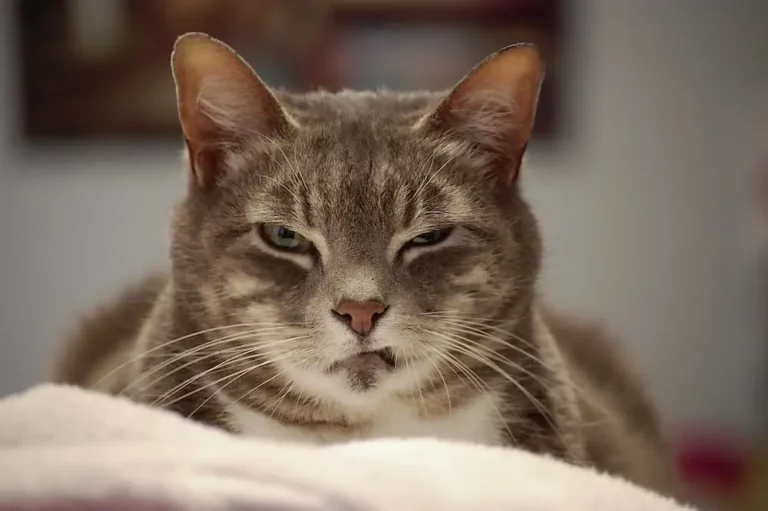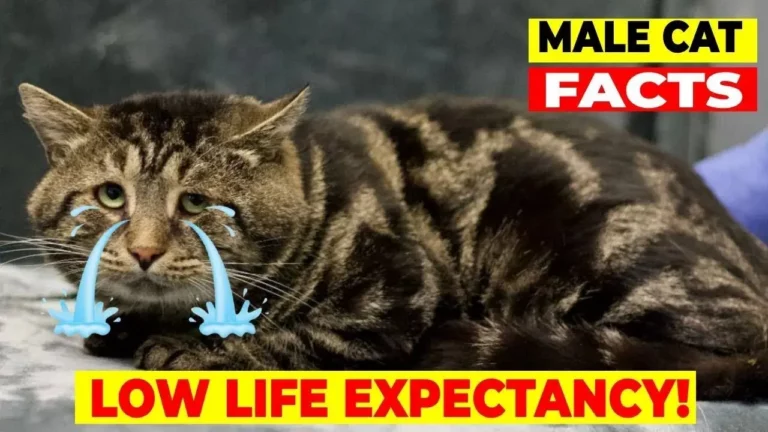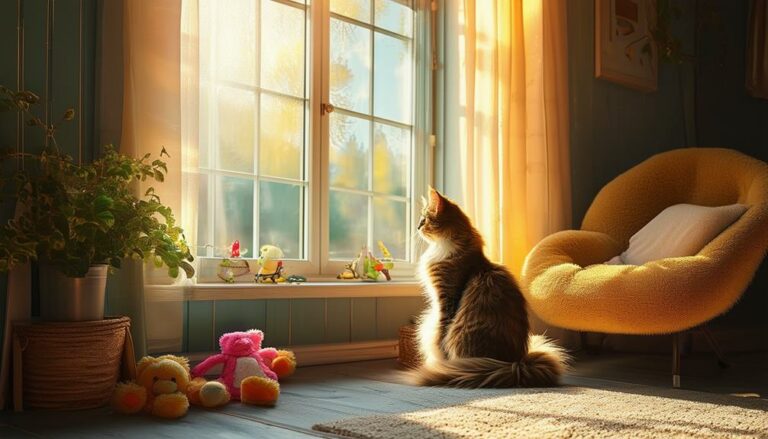The Mystery Of Mute Cats: Why Some Cats Never Meow
When your
Several factors can contribute to this quiet behavior, including breed characteristics, individual personality traits, potential health issues, social dynamics, and environmental influences.
For example, breeds like the Russian Blue and Scottish Fold are naturally less vocal due to selective breeding.
Additionally, personal temperament or health conditions like respiratory infections can affect their vocalizations.
Have you ever considered how your
There’s more to uncover about their unique communication style.
Breed Characteristics
Certain
If you’ve ever noticed that some cats hardly meow, it might be because of their breed.
For instance, the Russian Blue is known for its quiet demeanor, often preferring silence over vocalizations.
Similarly, the Scottish Fold tends to be on the quieter side, rarely expressing itself through loud meows.
These breeds have been selectively bred over generations, emphasizing traits like calmness and reduced vocalization.
Understanding these breed characteristics can help you better communicate with your
If you own a less vocal breed, don’t worry if your
Instead, pay attention to their body language and other forms of communication, like purring or tail movements, to understand their needs and emotions.
Moreover, consider the environment and routine you provide.
Quiet breeds might thrive in calmer, less noisy households. Knowing your
Individual Personality
While breed characteristics play a significant role, an individual
Just like people, cats have unique personalities that can vary widely. Some cats are naturally more reserved and may not feel the need to meow frequently.
They might communicate through body language, such as purring, rubbing against you, or even through their eyes.
Others are more outgoing and will use meowing as a primary way to get your attention.
You might notice that your
On the other hand, some cats are more social and will meow to engage with you or other pets.
It’s essential to observe your
Health Issues
Health issues can sometimes be the reason your
Various medical conditions, from infections to physical injuries, might affect their vocal cords or overall desire to vocalize.
If your
For instance, respiratory infections can cause congestion, making it hard for cats to meow.
Similarly, conditions like laryngitis can directly affect their ability to produce sound.
It’s also possible that dental issues or pain in the mouth might deter them from making noises. Even stress or anxiety can lead to changes in your
Here’s a table summarizing common health issues and their potential effects on meowing:
| Health Issue | Potential Effect on Meowing |
|---|---|
| Respiratory Infections | Congestion, difficulty meowing |
| Laryngitis | Inability to produce sound |
| Dental Problems | Pain, reduced vocalization |
If you’re concerned, a visit to the vet is important. They can diagnose any issues and recommend treatment.
Regular check-ups can help catch problems early, ensuring your
Always monitor your
Social Dynamics
Your
Cats are social creatures, and their communication can vary depending on their relationships with humans and other animals.
If your
Different cats have different personalities, and some are naturally more vocal than others. Social dynamics within a multi-cat household can also play a role.
For instance, a dominant
Observing how your
Additionally, cats often mirror the behavior of their owners.
If you’re generally quiet, your
Understanding these social dynamics helps you recognize why your
Environmental Factors
Living conditions and surroundings can profoundly impact your
If your home is generally quiet and serene, your
In a peaceful environment, cats often rely more on body language to communicate.
Conversely, if your home is bustling with noise and activities, your
The size of your living space also plays a role. In smaller homes or apartments, cats might meow less because they can easily see and follow you around.
On the other hand, in larger houses, they might meow more to locate you or communicate across distances.
Additionally, the presence of other animals can either increase or decrease your
A dominant pet might suppress your
Changes in the environment, like moving to a new home or rearranging furniture, can also affect your
Observing your
Conclusion
Understanding why some cats don’t meow can help you better connect with your
Factors like breed characteristics, individual personality, potential health issues, social dynamics, and their environment all play a role.
By observing your
Pay attention to their body language and other forms of communication.
This knowledge lets you respond effectively, fostering a stronger bond with your quiet






